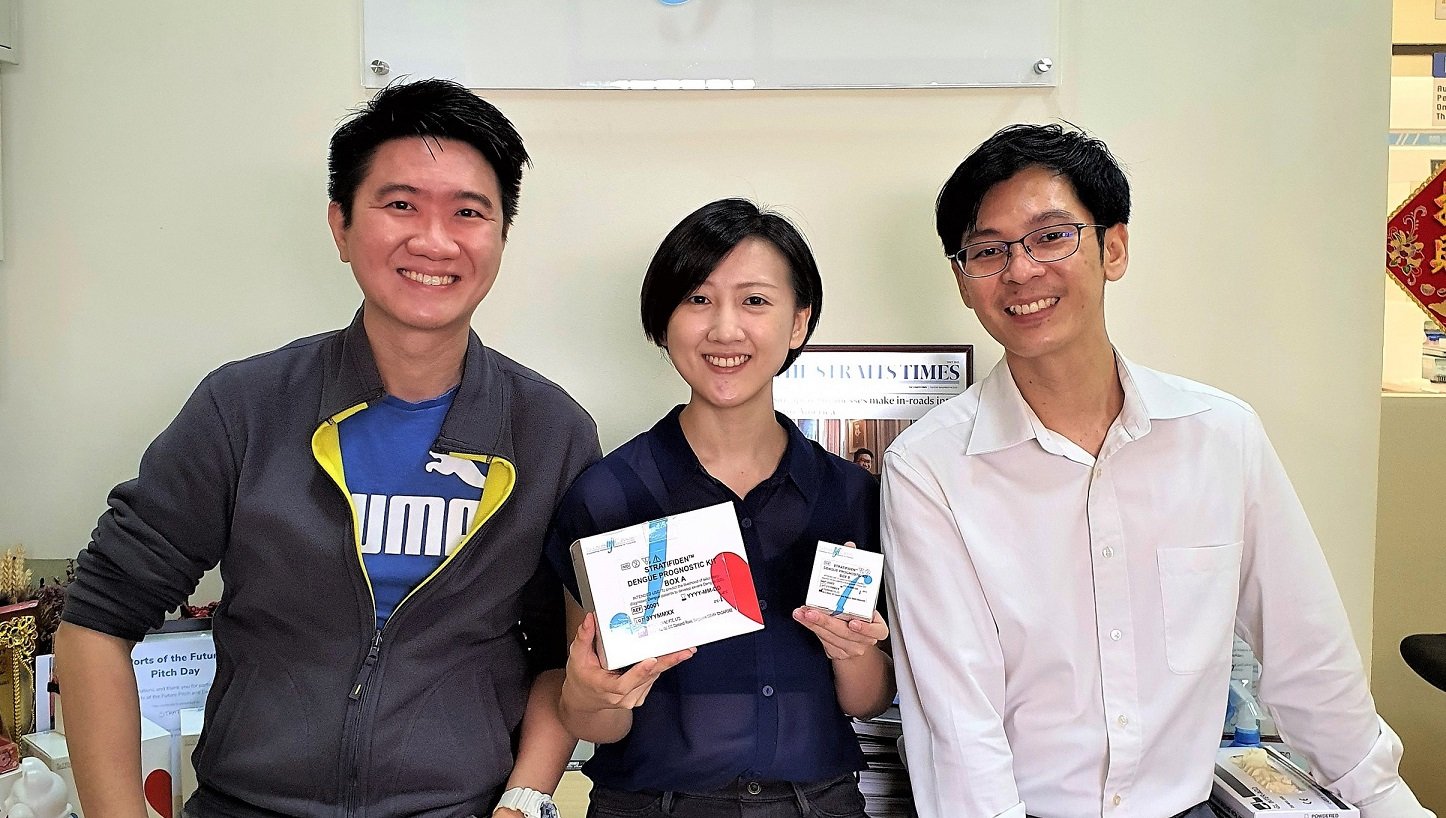
StratifiCare, a predictive medical diagnostic solutions startup in Singapore, has raised S$1 million (US$729,000) in seed funding from ADB Ventures and early-stage venture capital Sprout.
Other participating investors are Jeffrey Tiong, CEO of PatSnap, and Quek Siu Rui, CEO of Carousell.
Using the fresh capital, StratifiCare will set up pilot manufacturing facilities. It will also carry out clinical trials for its Dengue prediction test, StratifiDen, in the diseases-affected Asian nations.
The company also plans to collaborate with clinical partners to test out StratifiDen in the Philippines, Sri Lanka, and Vietnam.
“This could have a very significant impact on the way Dengue treatment is managed in Asia and beyond,” said Yichu Zhang, investment associate at ADB Ventures.
Also read: Are biomedicine and healthcare coming of age?
Launched in 2015 by CEO Anthony Chua and friends, StratifiCare develops a broad range of predictive in-vitro diagnostics (IVD) solutions to power personalised medicine. The company says each solution can minimise hospital (re)admissions, reduce the usage of ineffective treatments, and enhance patient outcomes.
StratifiCare claims that by detecting the concentrations of particular proteins in the patient’s blood, StratifiDen can assist doctors in diagnosing severe disease complications (such as internal bleeding) and the hospitalisation needs of Dengue patients.
According to a joint study published in 2019 by four American universities, global warming, increasing urbanisation, and mosquito geographic expansion would put one billion additional people in temperate zones at risk of Dengue infection by 2080.
The World Health Organization (WHO) also estimates that 390 million people are infected with Dengue fever each year.
Given that less than five per cent of hospitalised Dengue patients develop severe complications, StratifiDen helps assure hospital resources are reserved for severe cases during major outbreaks while also reducing the financial burdens on Dengue patients and their families from unnecessary hospitalisation.
According to figures from a University of Washington health economics research, StratifiDen adoption would save Dengue-affected developing nations throughout the world around US$7.6 billion of direct medical cost savings per year, claims the company.
“StratifiDen ensures that scarce hospital resources are reserved for severe Dengue patients during large Dengue outbreaks,” said StratifiCare co-founder and CEO Dr Anthony Chua.
Also read: Predictive analytics is shaping the modern life
Apart from the Dengue prediction test, StratifiCare has also expanded its offerings to include cancer medical diagnostic tests by leveraging the knowledge and infrastructure built to develop predictive medical diagnostics for StratifiDen.
According to the McKinsey report, the medtech market in Asia-Pacific is expected to expand to over US$133 billion in 2020, up from US$88 billion in 2015, surpassing the European Union as the world’s second-largest market.
Industry Insights Research also stated that the medtech sector contributed S$13 billion (US$9.4 billion) to Singapore’s GDP.
The number of homegrown medtech firms in Singapore has increased from 100 in 2014 to more than 250 in 2018, with several recent Neuroglee Therapeutics, One BioMed, and Leben Care deals.
—
Image Credit: StratifiCare
The post StratifiCare attracts seed funding from ADB Ventures, Sprout for its Dengue disease prediction test appeared first on e27.

